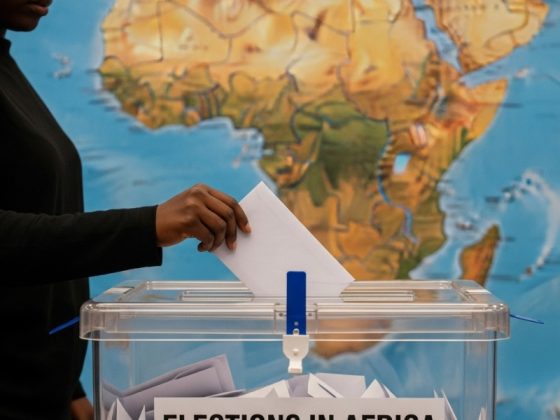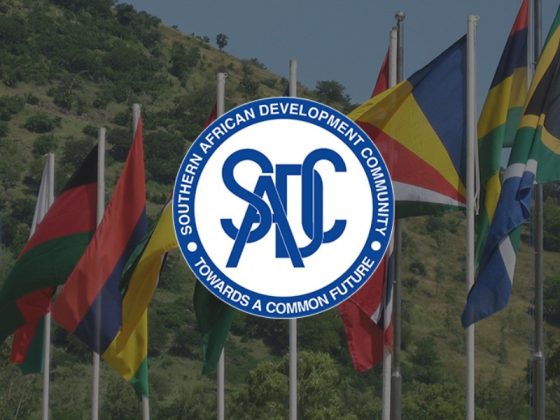
The Democratic Republic of Congo (DRC) remains one of Africa’s most intractable conflict zones, decades after the fall of long-time leader Mobutu Sese Seko in September 1997. In the eastern provinces of North and South Kivu, violence continues to claim lives, destabilise communities, and disrupt regional stability. Rich in minerals but weak in governance, the region has become a nexus of local grievances, regional rivalries, and global interests.
Earlier in the year, M23 and allied rebel groups, supported by Rwanda, seized total control of key strategic nodes in North and South Kivu, marking a humiliating setback for peacekeeping missions such as the UN-sponsored SADC Mission in the DRC (SAMIDRC). By the end of January, M23 had captured Goma, the provincial capital of North Kivu, and surrounding areas, displacing over 700,000 people and overwhelming local infrastructure and humanitarian resources. In February, the rebels advanced south into Bukavu, the capital of South Kivu, taking control of key districts including Kazingu and Bagira, encountering little resistance as Congolese forces had redeployed further north.
Beyond the provincial capitals, M23 secured several strategic towns and infrastructure points. These included Walikale, a major mining hub in North Kivu; Minova, a key supply route to Goma; and towns such as Katale and Masisi, vital gateways into the DRC’s interior. The rapid and widespread territorial gains by M23 exposed the failure of SAMIDRC and other international missions, demonstrating the limits of military intervention in complex, resource-rich conflict zones.
These developments underscore the geopolitical complexity of the DRC conflict, where local dynamics, regional alliances, and global interests intersect. The situation remains fluid, with ongoing humanitarian crises and the potential for further escalation.
Amid this environment, the Thabo Mbeki Foundation’s (TBF) second annual Peace and Security Talks, held two weeks ago in Magaliesburg, sought to advance inclusive dialogue. Yet the obstacles remain formidable, highlighting the limits of diplomacy, perceived neutrality, and military force in resolving a conflict that has repeatedly resisted conventional solutions.
Lessons from Sun City
Mbeki’s experience as chief architect of the 2001-2003 Inter-Congolese Dialogue (IDC) at Sun City, South Africa’s North West province, highlights both the potential and the limitations of inclusive negotiation. The Sun City Agreement, signed on 2 April 2002, brought together government officials, opposition figures, rebel factions, and civil society to form a transitional Congolese government. It was unprecedented in scale and inclusivity, expanding participation across Congo’s fractured polity. One of the tangible outcomes of this process was the drafting of the Congolese Constitution, which was approved in a referendum by the Congolese people and promulgated on 18 February 2006 by President Joseph Kabila. It enshrined principles of decentralisation, human rights, and political pluralism.
Yet the outcome was only partially realised. Kinshasa struggled to assert authority over North and South Kivu, leaving militias and local actors in de facto command. The process revealed the challenge of transforming symbolic agreements into effective governance on the ground. Today, the eastern DRC faces a similar predicament. While dialogue remains essential, symbolic agreements alone cannot resolve conflicts rooted in identity politics and competition over natural resources. The eastern provinces continue to operate semi-autonomously, with the M23 wielding significant influence and control.
The regional dimension and the Banyamulenge
The conflict has long transcended national boundaries. Rwanda, Uganda, and Burundi have played direct and indirect roles in supporting armed factions, while fighting has periodically spilled into neighbouring states. Rwanda has for decades been providing support to the M23, facilitating their military operations and access to resources in North and South Kivu. A notable figure in this context is former Tutsi rebel leader General Laurent Nkunda, once considered a protégé of Rwandan President Paul Kagame. Nkunda is currently held in Rwanda, but Kigali has refused to extradite him to the DRC, a move that continues to fuel mistrust in Kinshasa and complicates regional security arrangements.
Uganda, on the other hand, has historically backed factions of the National Congress for the Defence of the People (CNDP) and other allied militias, leveraging influence over local armed groups to secure strategic interests in the region. Burundi has been linked to support for the National Forces of Liberation (FNL) and smaller Congolese Tutsi-aligned militias, often coordinating through cross-border networks.
A particularly contentious issue is the status of the Banyamulenge, a Tutsi-speaking community resident in South Kivu for generations. Thabo Mbeki and other mediators insist that the Banyamulenge are Congolese citizens, integral to the DRC’s social fabric, and must be included in any peace process. Excluding them risks further marginalisation and deepens identity-based grievances.
M23, largely composed of Tutsi fighters, benefits from Rwanda’s support, using mineral wealth to finance operations and assert territorial influence. These resources, vital for global technology supply chains, underscore the economic dimension of the conflict. For Kinshasa, reclaiming these territories is not merely about sovereignty; it is about controlling assets that could fund essential services, from education and healthcare to infrastructure development.

Foreign powers and the geopolitical complexity
The DRC’s conflict extends beyond its borders, shaped as much by global interests as by local grievances. The United States engaged through the 2022 Washington Accord, in which the DRC offered access to critical minerals, such as cobalt and coltan, in exchange for security support, intelligence sharing, and logistical assistance against armed groups like M23. This framework links economic incentives with strategic security cooperation, reflecting U.S. priorities in safeguarding high-tech supply chains.
In June, the second Trump administration facilitated yet another peace agreement between the DRC and Rwanda, also referred to as the Washington Accord. It mandated the withdrawal of Rwandan troops from eastern DRC and an end to support for M23, while the DRC agreed to halt backing for the Democratic Forces for the Liberation of Rwanda (FDLR). The deal included economic provisions, such as joint infrastructure projects and access to mineral resources, aiming to stabilise the region and foster development.
Despite these efforts, implementation has faced obstacles. President Félix Tshisekedi welcomed the mediation but stressed that success depends on Rwanda’s full compliance, particularly in curbing M23 activity. He also reiterated that while Congo remains open to U.S. partnership in mining and energy, its natural resources would not be “auctioned” for foreign interests.
Meanwhile, Qatar has mediated talks under the Doha Declaration of Principles, seeking a permanent ceasefire and negotiation framework for North and South Kivu. Progress has been slow, with repeated violations by both the DRC government and M23, including localised offensives and delays in troop withdrawals. These challenges highlight the fragility of externally brokered agreements when local and regional actors lack full commitment.
Rwanda’s ongoing support for M23 further complicates the situation, demonstrating how regional alliances intersect with economic and strategic interests. The eastern DRC remains a nexus of competing agendas, where military solutions alone have consistently failed, and where diplomatic efforts require sustained coordination, enforcement, and the inclusion of all key stakeholders.
Mbeki’s push for inclusive Dialogue
Against this backdrop, Thabo Mbeki continues to advocate for dialogue that includes all stakeholders. Drawing on lessons from Sun City, he emphasises that excluding key actors – rebels, government officials, opposition leaders, civil society, the Banyamulenge, and even former President Joseph Kabila – risks undermining credibility and durability. Kabila, now facing trial for alleged complicity in supporting armed groups, remains politically influential. For Mbeki, sustainable peace cannot be achieved without the inclusion of all parties who shape the conflict’s dynamics.
Mbeki’s position is unflinching. Speaking at UNISA in Pretoria on 12 September, he stated: “You cannot discuss peace and security in the Congo without involving the M23. Otherwise, you are joking.” His insistence on inclusivity is grounded not in sentimentality but in pragmatism: the DRC’s fractured conflict landscape requires negotiation among all actors, no matter how controversial.
Kinshasa’s resistance
Tshisekedi’s administration has resisted this inclusive approach. The government declined invitations to the TBF Peace Talks and blocked opposition leaders from attending. Kinshasa has questioned Mbeki’s neutrality, citing alleged links to both M23 and Kabila.
It is difficult to determine whether these accusations of bias are entirely genuine or partly a negotiating tactic aimed at shaping the terms of engagement. By casting doubt on Mbeki’s impartiality, Kinshasa may seek to delegitimise the talks, avoid scrutiny of its own policies, or limit the involvement of actors it perceives as politically inconvenient. At the same time, perceptions of bias, whether real or strategic, are consequential: they can deter participation, reduce trust among stakeholders, and undermine the credibility of the peace process.
Regardless of the motivation, the absence of key actors, combined with contested perceptions of neutrality, challenges the legitimacy of the TBF initiative and raises questions about whether the dialogue can achieve meaningful outcomes without concessions or confidence-building measures from all parties.
The limits of military intervention
Military interventions have repeatedly shown their limits. MONUSCO and SADC forces, including South African contingents, have suffered fatalities without permanently weakening M23. Campaigns of force often provoke counter-alliances among militias, creating cycles of violence rather than sustainable security. Civilians continue to bear the brunt of the conflict: atrocities against women and children, forced recruitment of minors, and the destruction of livelihoods, including agriculture and local mining, perpetuate cycles of poverty and displacement.
Challenges to Mbeki’s initiative
Even with the TBF’s commitment to neutrality and inclusion, systemic challenges remain. SADC is divided over strategy: some advocate military solutions, while others back diplomatic engagement. The African Union is similarly fragmented and distracted by crises elsewhere on the continent. Domestically, Mbeki lacks broad political support, especially following the deaths of 14 South African soldiers serving in the DRC under the SAMIDRC earlier this year.
The exclusion of Kinshasa and the perception of bias further complicate matters. Peace processes rely on legitimacy and trust as much as logistics and agreements. Without buy-in from the government and major actors, even meticulously planned negotiations risk failure.
Toward a sustainable path
The DRC conflict underscores a sobering truth: lasting peace cannot be imposed. Power alone, whether political or military, does not resolve deeply entrenched conflicts. Durable solutions require inclusive dialogue, impartial mediation, and acknowledgment of multiple layers of the conflict; from local grievances and identity politics to regional and global interests.
Mbeki’s insistence on including all parties, including rebels, former presidents, opposition figures, and the Banyamulenge, reflects this reality. While his approach faces scepticism, it highlights the principle that dialogue must be representative and perceived as legitimate to have any chance of success. Exclusion breeds mistrust, delays resolution, and risks perpetuating cycles of violence.
The TBF Peace Talks are less about immediate victories than about laying the groundwork for durable, participatory, and accountable peace processes. By prioritising inclusivity, they aim to create conditions where governance, development, and regional stability can take root. Until such a foundation is established, the eastern DRC will remain a theatre of conflict; a stark reminder that negotiations, rather than military might, are the only viable path toward lasting peace.



